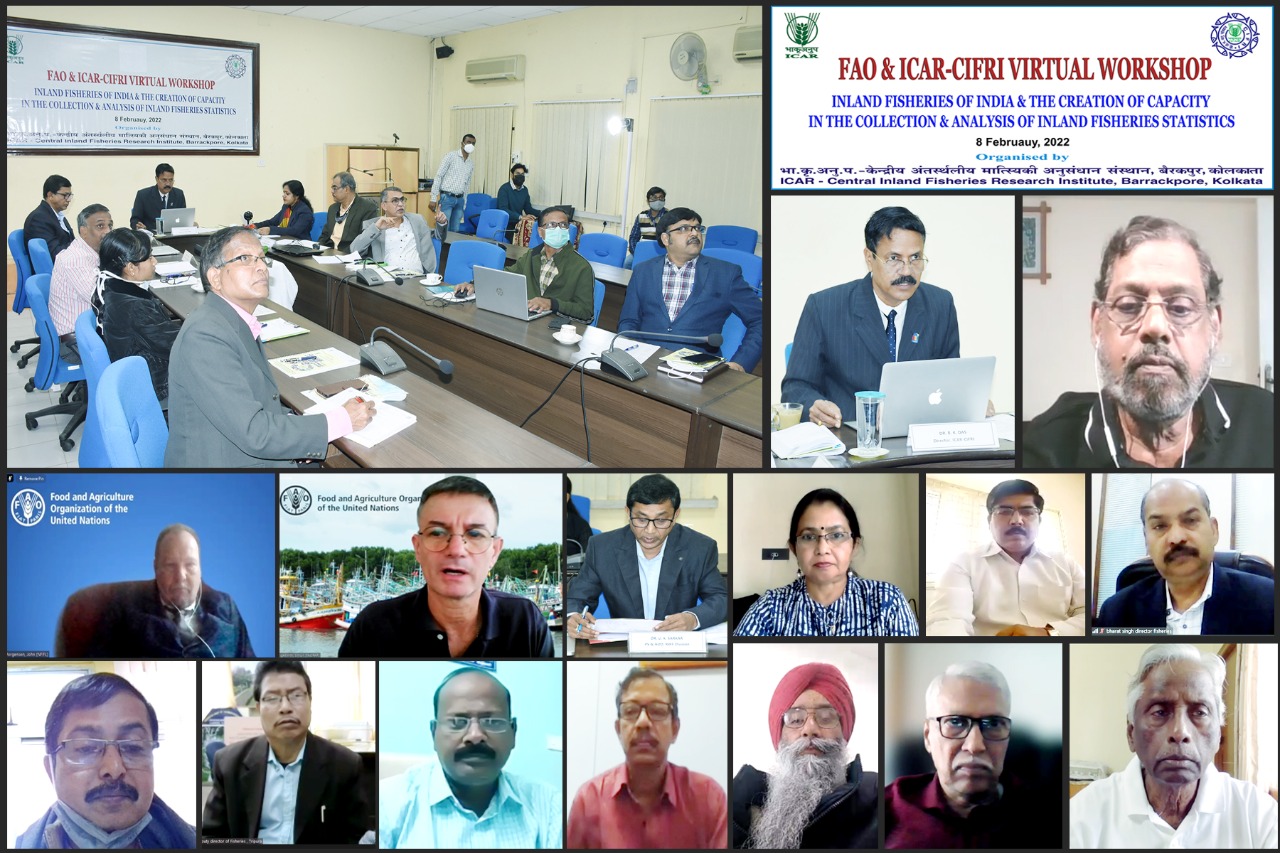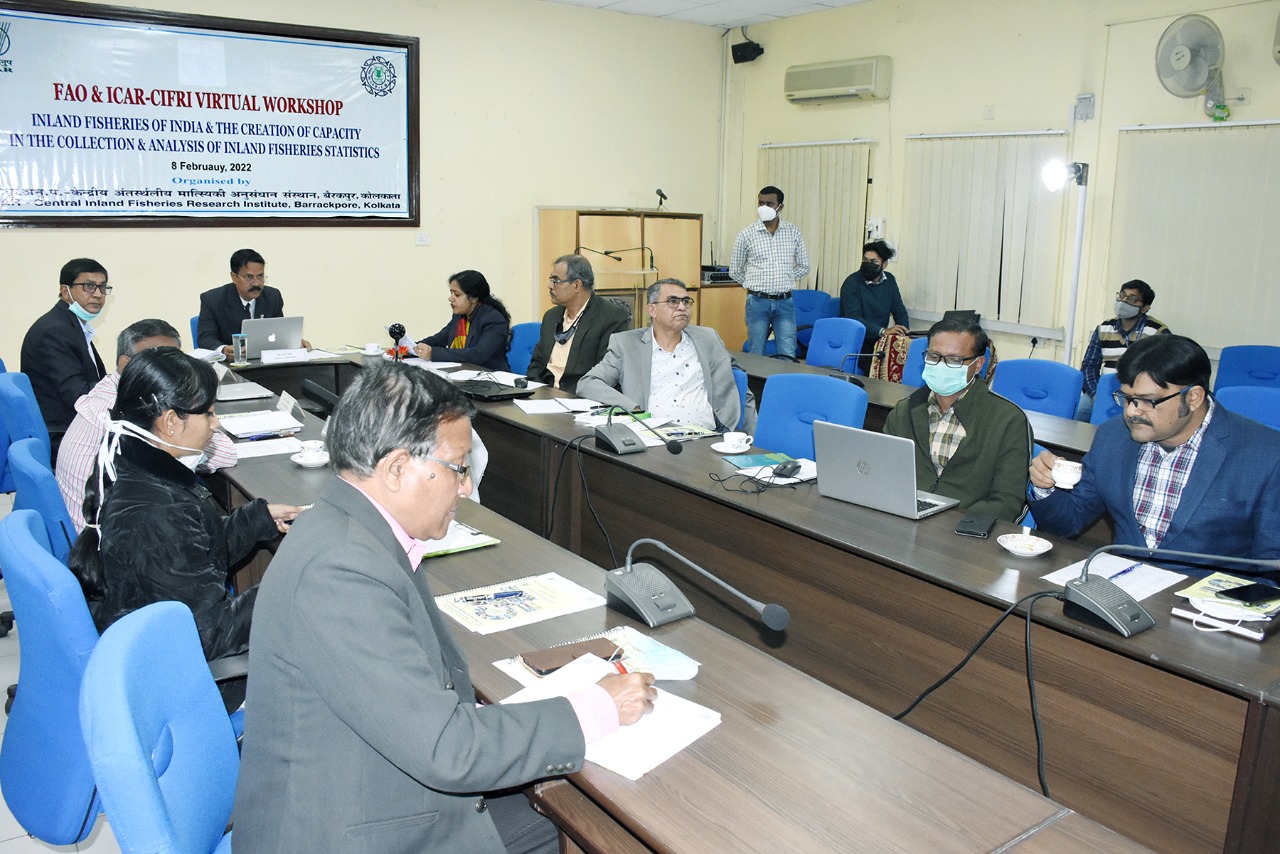Overview
Publications
Recruitment
Intranet
CIFRI Corners'
Indian inland fisheries are unique and very rich in terms of water bodies that are amenable for practicing both capture fisheries and stockenhanced fisheries like rivers, floodplain wetlands estuaries, lagoons, reservoirs and floodplain wetlands, and upland lakes. The inland fisheries support the livelihood and nutritional security of millions in the country.The documentation on inland fisheries resources, their productivity and utilization remain scattered, forestalling any meaningful database at the national level.
Realizing this hiatus, the Food and Agriculture Organization of the United Nations (FAO) has entrusted ICAR-Central Inland Fisheries Research Institute (ICAR-CIFRI) with the responsibility to undertake the task to produce a comprehensive document on inland fisheries resources of India as a referral point for international minds.
FAO & ICAR-CIFRI Virtual workshop on “Inland Fisheries in India and the creation of capacity in the collection and analysis of Inland Fisheries Statistics”has been organized on 8 February 2022 for discussion on inland fisheries documentation strategies and to provide critical review and expert opinion on the first draft report.
Dr. B. K. Das, Director, ICAR-CIFRI welcomed all the dignitaries and participants and gave in brief the details about the workshop. He said that 21% of the total inland catch of India contributed by the inland open water capture fisheries.
Dr. V. V.Sugunan, Senior Expert, FAO-CIFRI project gave a brief account of this project and the need of documentation on inland fisheries resources, their productivity and utilization in India. He emphasized that this time a major attempt have been made to put a comprehensive document on inland fisheries in India.
Dr. B. K. Das, Director, ICAR-CIFRI, gave a brief presentation on the draft report. He discussed about the six chapters of the draft report encompassing, inland fisheries resources the methodologies of data collections, Socio-economy, management, institution and governance.
Dr. JohnValbo-Jorgensen, Fisheries Resource officer (inland fisheries)of FAO remarked that a lot of detailed information gathered by CIFRI for this document. He said that in India, inland fisheries are under pressure due to access to these resources. The management of inland fisheries resources is also difficult in comparison to aquaculture and culture based management.
Dr. Ferge-Smith Simon, FAO representative in his remarks that the document shall include the details of whole river statistics and not sector wise. He said that the socio economic and institutional part needs more emphasis.
Dr. M. V. Gupta, World food Laurette in his address said that this was much needed document. There is an urgent need of separating data of catch of aquaculture and capture fisheries in inland sector by state fisheries department.
Representative of NFDB, Fisheries departments of Andhra Pradesh, Tripura, Assam, Chhattisgarh, Madhya Pradesh, Mizoram also interacted on this occasion. Dr. U. K. Sarkar, HoD, Reservoir and wetland fisheries department proposed vote of thanks.
More than 70 participants including representatives from the FAO, Department of Fisheries, Government of India and Fisheries Departments of States and UTs, Experts, Technocrats, Scientists, and the Academia participated in this workshop and provide critical input and expert opinion on the draft report.


Updated on 08/02/2022










